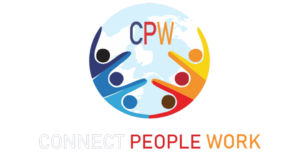The Power of Content Marketing
Content marketing is a powerful tool for building brand awareness, attracting and retaining customers, and driving conversions. The key to successful content marketing lies in creating engaging and valuable content that resonates with your audience. Here’s how to harness the power of content marketing:

1. Understanding Your Audience
- Create Buyer Personas: Develop detailed profiles of your ideal customers, including demographics, interests, pain points, and online behavior.
- Conduct Audience Research: Use tools like surveys, social media insights, and website analytics to gather data about your audience’s preferences and needs.
2. Setting Clear Goals
- Define Objectives: Common content marketing goals include increasing brand awareness, driving website traffic, generating leads, and boosting sales.
- SMART Goals: Ensure your goals are Specific, Measurable, Achievable, Relevant, and Time-bound.
3. Developing a Content Strategy
- Content Themes: Identify key themes and topics that are relevant to your audience and align with your brand’s mission.
- Content Types: Use a mix of content formats, such as blog posts, videos, infographics, podcasts, and social media updates.
- Content Calendar: Plan and schedule your content in advance to ensure consistency and timeliness.
4. Creating High-Quality Content
- Focus on Value: Provide useful, informative, and actionable content that addresses your audience’s challenges and interests.
- Engaging Formats: Use storytelling, visual elements, and interactive features to capture and hold your audience’s attention.
- Professionalism: Ensure your content is well-written, well-designed, and free of errors.
5. Optimizing for SEO
- Keyword Research: Identify relevant keywords and incorporate them naturally into your content.
- On-Page SEO: Optimize titles, meta descriptions, headers, and images for search engines.
- Quality Backlinks: Earn backlinks from reputable sites to enhance your content’s authority and ranking.
6. Leveraging Social Media
- Share Content: Promote your content on social media platforms to reach a broader audience.
- Engage with Followers: Respond to comments, participate in conversations, and encourage user-generated content.
- Paid Promotions: Use social media ads to boost visibility and target specific demographics.
7. Using Email Marketing
- Build an Email List: Collect email addresses through website sign-ups, lead magnets, and promotions.
- Segment Your Audience: Send tailored content based on subscriber interests and behaviors.
- Regular Newsletters: Keep your audience engaged with regular updates, exclusive content, and personalized recommendations.
8. Measuring and Analyzing Performance
- Key Metrics: Track metrics such as traffic, engagement, conversion rates, and social shares.
- Tools: Use tools like Google Analytics, social media analytics, and email marketing software to gather insights.
- Adjust Strategies: Use data to refine your content strategy and improve future content.
9. Encouraging User-Generated Content
- Content Contests: Run contests encouraging users to create and share content related to your brand.
- Testimonials and Reviews: Collect and showcase customer testimonials and reviews.
- Community Building: Foster a sense of community by highlighting user-generated content on your website and social media.
10. Repurposing Content
- Different Formats: Convert blog posts into videos, infographics, or podcasts to reach different audience segments.
- Update Evergreen Content: Regularly update high-performing content to keep it relevant and valuable.
- Cross-Channel Promotion: Share content across multiple platforms to maximize reach and impact.
Conclusion
Content marketing is a powerful tool for building brand awareness, engaging your audience, and driving conversions. By understanding your audience, setting clear goals, developing a comprehensive content strategy, and leveraging various distribution channels, you can create content that is both engaging and valuable. Consistently providing high-quality content, optimizing for SEO, and measuring performance will help you achieve your marketing objectives and foster long-term customer relationships.

Leave a Reply